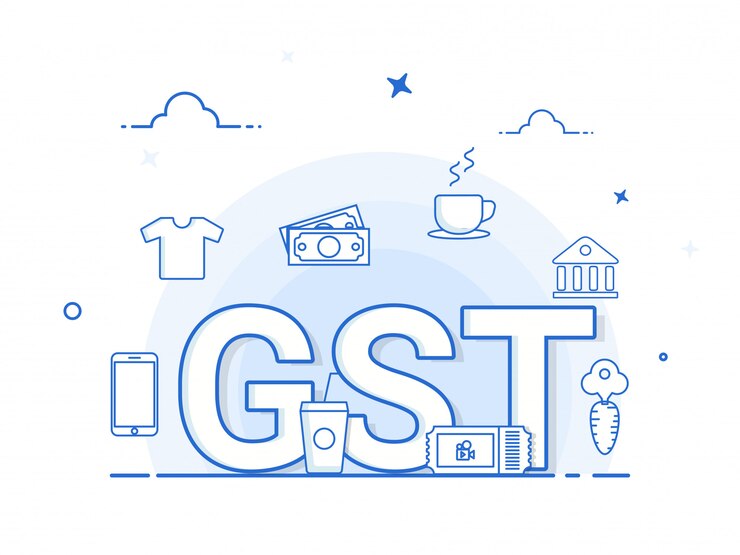INCOME TAX

TDS Return
A TDS (Tax Deducted at Source) return involves filing periodic statements of tax deducted on payments such as salaries, interest, or contracts. It ensures compliance and proper credit allocation for taxpayers.
TCS Return
A TCS (Tax Collected at Source) return involves filing details of tax collected by sellers under specific transactions. It ensures compliance with tax regulations and facilitates seamless tax credit for buyers.
Income Tax Return-Individual
An Income Tax Return for individuals involves reporting income, claiming deductions, and calculating tax liabilities for a financial year. It ensures compliance, enables refunds, and supports financial transparency with tax authorities.
Income Tax Return-HUF
An Income Tax Return for a Hindu Undivided Family (HUF) involves reporting the HUF’s income, claiming deductions, and computing tax liabilities. It ensures compliance and effective tax management for family-managed assets and income.
Income Tax Return-Firm
An Income Tax Return for a firm involves reporting the firm’s income, claiming deductions, and computing tax liabilities. It ensures compliance, supports financial planning, and maintains transparency with tax authorities.
Income Tax Return-Partnership
An Income Tax Return for a partnership firm involves reporting the firm’s income, deducting expenses, and calculating the tax liabilities of the business. It ensures compliance with tax laws and proper allocation of profits among partners.
Income Tax Return-Company/LLP/N.G.O.
An Income Tax Return for a Company, LLP, or NGO involves reporting their income, expenses, and tax liabilities. It ensures legal compliance, claims eligible deductions, and maintains transparency for tax authorities and stakeholders.
Income Tax Return-Firm
An Income Tax Return for a firm involves reporting the firm’s income, claiming deductions, and computing tax liabilities. It ensures compliance, supports financial planning, and maintains transparency with tax authorities.
GST

GST Registration
GST Registration is the process by which a business or individual is registered under the Goods and Services Tax (GST) system. It enables them to collect tax on sales, claim input tax credits, and comply with tax laws.
GST Registration Cancellation
GST Registration Cancellation is the process of deactivating a GST registration when a business no longer meets the eligibility criteria or ceases operations. It involves filing an application with the GST authorities to discontinue tax obligations.
GST Refund
A GST refund is the reimbursement of excess tax paid by a business, either due to export of goods and services, excess input tax credit, or tax paid on purchases exceeding output tax liability. Businesses can apply for a refund through the GST portal.
GSTR-1
GSTR-1 is a monthly or quarterly return filed by GST-registered businesses to report details of outward supplies (sales) of goods and services. It includes invoices, debit/credit notes, and adjustments, helping ensure accurate tax reporting.
GSTR-3B
GSTR-3B is a monthly or quarterly summary return that businesses must file under GST. It includes details of outward and inward supplies, input tax credit (ITC), and the tax payable for the period, ensuring timely tax compliance.
GSTR-9
GSTR-9 is an annual return form filed by GST-registered businesses, summarizing all the details of outward and inward supplies, taxes paid, and any adjustments made during the financial year. It ensures compliance and accurate reporting of GST transactions.
GSTR-9C
GSTR-9C is a reconciliation statement required to be filed by businesses with a turnover exceeding ₹2 crore. It reconciles the annual GST returns (GSTR-9) with the audited financial statements, verifying the correctness of the reported figures and ensuring tax compliance.
GSTR-7
GSTR-7 is a return filed by businesses required to deduct tax at source (TDS) under GST. It reports the TDS deducted on payments made to suppliers, along with details of the amount paid to the government, ensuring tax compliance.
GSTR8
GSTR-8 is a return filed by e-commerce operators under GST, reporting details of supplies made through their platform and the TCS (Tax Collected at Source) amounts. It helps reconcile sales and tax collected from sellers using the e-commerce platform.
GSTR9B
GSTR-9B is a return form specifically for taxpayers who are required to file GST audits. It reconciles the details of outward supplies and input tax credits with the financial statements, ensuring accurate reporting for annual GST compliance.
GSTR10
GSTR-10 is a return filed for GST registration cancellation. It is a final return that businesses must submit when their GST registration is canceled, reporting details of stock on hand, tax liabilities, and other relevant information as of the cancellation date.
GSTR11
GSTR-11 is a return filed by individuals or entities holding a Unique Identity Number (UIN), such as foreign diplomats or government organizations, to claim a refund on GST paid on purchases. It provides details of inward supplies and the refund claim.
VAT

VAT Registration
GST Registration is the process by which a business or individual is registered under the Goods and Services Tax (GST) system. It enables them to collect tax on sales, claim input tax credits, and comply with tax laws.
VAT Return
GST Registration Cancellation is the process of deactivating a GST registration when a business no longer meets the eligibility criteria or ceases operations. It involves filing an application with the GST authorities to discontinue tax obligations.
